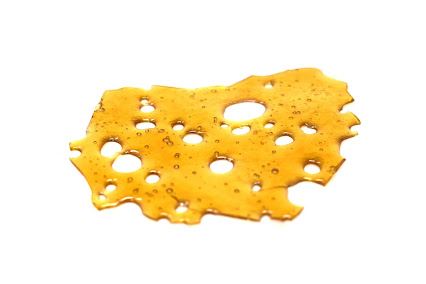Role of weed edibles in improving mental health
Cannabis, including weed edibles, has been the subject of growing interest regarding its potential role in improving mental health. While individual experiences can vary, and more research is needed, there is emerging evidence suggesting that certain compounds found in cannabis may have therapeutic effects on various mental health conditions. In this response, we will explore the potential role of weed edibles in improving mental health.
1. Anxiety and Stress Reduction
Anxiety disorders are among the most common mental health conditions, affecting millions of people worldwide. Research suggests that cannabinoids, particularly CBD, may have anxiolytic properties. CBD interacts with serotonin receptors in the brain, influencing the body's response to stress and anxiety. Weed edibles with higher CBD content and lower levels of THC are often preferred for anxiety management as CBD counteracts the psychoactive effects of THC, providing a more relaxed and calm experience.
2. Depression
Depression is a complex mental health condition that can have a profound impact on an individual's well-being. Preliminary research indicates that certain cannabinoids found in weed edibles, such as THC and CBD, may have antidepressant properties. These compounds interact with the brain's endocannabinoid system, influencing mood regulation and potentially alleviating depressive symptoms. However, it's important to note that cannabis should be used as part of a comprehensive treatment plan for depression, and individuals should consult with healthcare professionals for personalized guidance.
3. PTSD and Trauma-Related Disorders
Post-Traumatic Stress Disorder (PTSD) is a condition that can develop after experiencing a traumatic event. Cannabis, including weed edibles, has shown promise in managing PTSD symptoms. The cannabinoids in cannabis may help regulate fear and anxiety responses, reducing hyperarousal and promoting relaxation. THC and CBD have been studied for their potential in reducing nightmares, improving sleep quality, and alleviating anxiety associated with PTSD. However, further research is needed to understand the precise mechanisms and effectiveness of cannabis for PTSD treatment.
4. Sleep Disorders
Sleep disorders, such as insomnia, can significantly impact overall well-being and quality of life. Weed edibles, particularly those with indica strains or higher levels of the terpene myrcene, are known for their potential sedative effects. Edibles with relaxing properties may help individuals achieve better sleep by promoting relaxation, reducing anxiety, and potentially alleviating pain or discomfort that could interfere with sleep quality. However, it's important to find the right dosage and strain that works best for each individual's specific sleep needs.
5. Addiction and Substance Use Disorders
Cannabis has been explored as a potential aid in managing addiction and substance use disorders. Some research suggests that cannabis may help individuals reduce their dependence on certain substances, such as opioids or alcohol. Weed edibles with balanced THC and CBD ratios may offer an alternative to individuals seeking to manage withdrawal symptoms or cravings associated with addiction. However, more research is needed to understand the long-term effects and potential risks of using cannabis as a substitute or adjunct to traditional addiction treatment approaches.
6. Neurological Disorders
Certain neurological conditions, such as epilepsy and multiple sclerosis, can have a significant impact on individuals' mental health. CBD, in particular, has shown promise in managing seizures associated with epilepsy. Some individuals with multiple sclerosis report that cannabis, including weed edibles, helps alleviate symptoms like muscle spasms, pain, and sleep disturbances. These improvements in physical symptoms may indirectly contribute to improved mental well-being.
7. Social Connection and Engagement
Mental health is strongly influenced by social factors, including social connection and engagement. Cannabis, when used responsibly and in appropriate settings, can enhance social experiences, facilitate bonding, and promote positive interactions. For some individuals, weed edibles may help reduce social anxiety and promote a sense of relaxation, allowing them to engage more comfortably in social settings. However, it's important to note that individual responses to cannabis can vary, and moderation is key to maintaining positive social experiences.
8. Creative Expression and Well-Being
Some individuals find that cannabis, including weed edibles, enhances their creativity and promotes a sense of well-being. It's been reported that cannabis can stimulate divergent thinking and enhance the creative process. This potential effect may be beneficial for individuals involved in creative pursuits or seeking alternative outlets for self-expression. However, it's important to note that the impact of cannabis on creativity can vary widely, and some individuals may experience reduced motivation or cognitive impairment.
9. Mindfulness and Stress Reduction
Weed edibles can be used in mindfulness practices and stress reduction techniques. By consuming cannabis mindfully, individuals can use the altered state of consciousness induced by the edibles to cultivate a deeper sense of relaxation, self-awareness, and present-moment focus. This can be particularly useful for individuals seeking to incorporate cannabis into their meditation or mindfulness practices as a tool for stress reduction and self-reflection.
10. Mental Health Awareness and Education
The growing acceptance and legalization of cannabis have contributed to increased awareness and education about mental health. By destigmatizing the conversation around cannabis use, individuals are more likely to seek information, resources, and support related to mental health. Weed edibles, along with other cannabis products, can serve as a catalyst for open discussions, leading to improved mental health literacy and greater access to mental health services.
It's important to note that while some individuals may find relief or improvements in their mental health symptoms with the use of weed edibles, cannabis should not be considered a universal solution, and individual responses can vary. Additionally, cannabis use, including the consumption of weed edibles, should be approached responsibly and in accordance with local regulations. Individuals experiencing mental health concerns should consult with healthcare professionals to determine the appropriateness and potential risks of incorporating cannabis into their treatment plans. Order BC weed edibles online from Top BC Cannabis.




Comments
Post a Comment